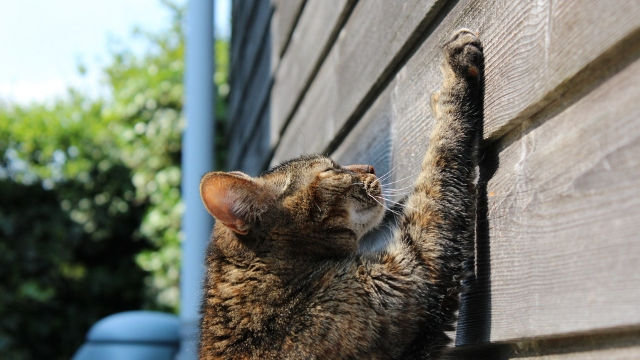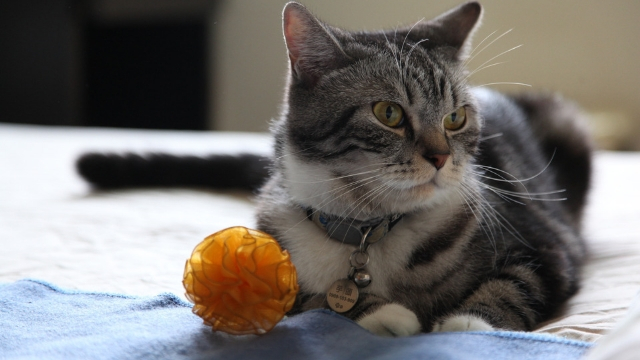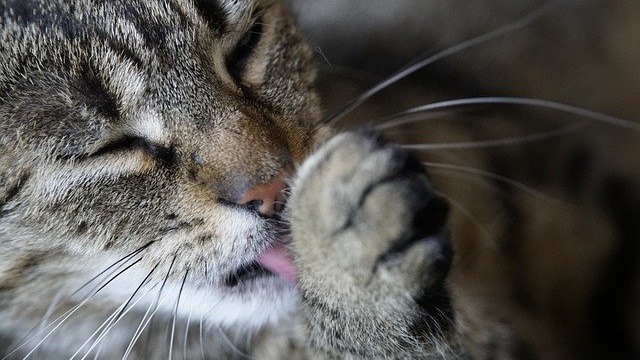We know dogs are defensive and territorial. We know they may physically attack an intruder or strangers if they feel their family and grounds are in danger. But, what about felines? Are cats territorial, or are they the epitome of “no feelings attached”? It’s true that, behavior-wise, they’re very different from canines when it comes to their space, but don’t be fooled. They may not jump to save your house from thieves, but let another cat try to take away their beds… we’ll talk then! ?
Are cats territorial?

Yes, they are.
Cats are loners, but keen hunters who like to control their territory. They know all the hunting and hiding spots, which kind of prey they should go for and how many they can get. A new object, animal or human that comes into their land is thus seen as a possible competitor or a threat.
The reaction to this invasion can vary depending on the cat, but it’s usually one of fear. They can hiss, take an aggressive stance and even attack the perceived threat. However, most will try to avoid confrontation and hide, but not before hissing a few times to show their discomfort. ?
How do cats mark their territory?

Territorial cats will make sure other animals know that’s their ground. ?
To spread the message, they rub their noses and foot pads on objects to transfer their odor or spray urine and defecate out of their litter box with the same intent. They can also engage in destructive behavior, scratching several spots around the house.
Are cats territorial only regarding their home and hunting grounds? No, they are not. They also like to make sure everyone knows who their humans are. That’s why they rub their noses on us and are likely to act aggressive or shun us if we come home smelling to a different animal.
Can they adapt their behavior?

Cat neutering can go a long way to solve this problem. If the behavior persists, you will need to work out strategies to divert your cat’s attention.
Place several scratching pads or poles around the house so they can channel their destructive markings on them. Don’t leave things on the floor, like towels or clothes, to prevent them from marking displaced objects with their odor. Close your windows and blinds so the cat doesn’t see other animals roaming outside and feels the need to reinforce their domination. ?
New furniture, humans or animals with unfamiliar smells can also trigger territorial behavior. Rub them with your cat’s blanket or toys to transfer their own odor and mask the unfamiliar ones, so the cat doesn’t feel as threatened.
Ultimately, if none of these tricks work, a vet can prescribe anti-anxiety drugs to help your kitty control their urges.
What if I’m dealing with an aggressive cat?
All the previous tips to correct their behavior still stand, but you will need to deal with their angry feelings in the meantime.
It’s very important to recognize signs that your cat is getting worked-up as soon as possible. Pay attention to cat language, both verbal and non-verbal, to spot any changes. Before the cat starts hissing and takes an aggressive stance, they may start thumping their tail on the floor, for instance. As soon as you realize what’s happening, try to lure them into a quiet room and close the door. Soothe them with words, but never approach them or attempt to pick them up as the cat may turn on you.
If you can’t manage to call them into another room, use an object (e.g. pillow) to block their line of sight from the cause of distress while talking softly to them. When their target is another cat or pet, use this moment to distract the second animal into a different area or activity to fully end the staring contest and lower the tension in the room.
If a fight is already in place, throw a blanket or a jacket over them as well as water to break them apart. Banging on metal surfaces, like a pot, can also work to distract or scare them from the fight.
Don’t try to pick up the cat or break the fight using your hands or placing yourself between them. ?♂️ You will most likely get bitten and scratched if you do so, and it won’t help soothe them either!
To sum up: are cats territorial? Yes. Can their behavior be corrected? Yes. Does it need to be corrected? Not really, unless it becomes a nuisance or makes your cat anxious. You wouldn’t want your cat to stop tenderly rubbing their little nose and head on you, after all. ? However, if they become obsessed about letting everyone know who’s the boss in the area, it’s not that you should, it’s that you must correct their behavior!






